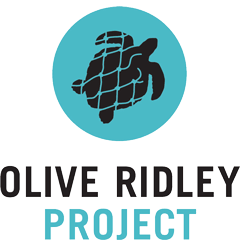Education is a big part of ORP’s mission and an important aspect of our multifaceted approach to protecting sea turtles and their habitats. We believe education is a powerful tool to increase awareness, engage people – particularly young people – and stimulate action at the local, international and policy level.
The role of education in conservation
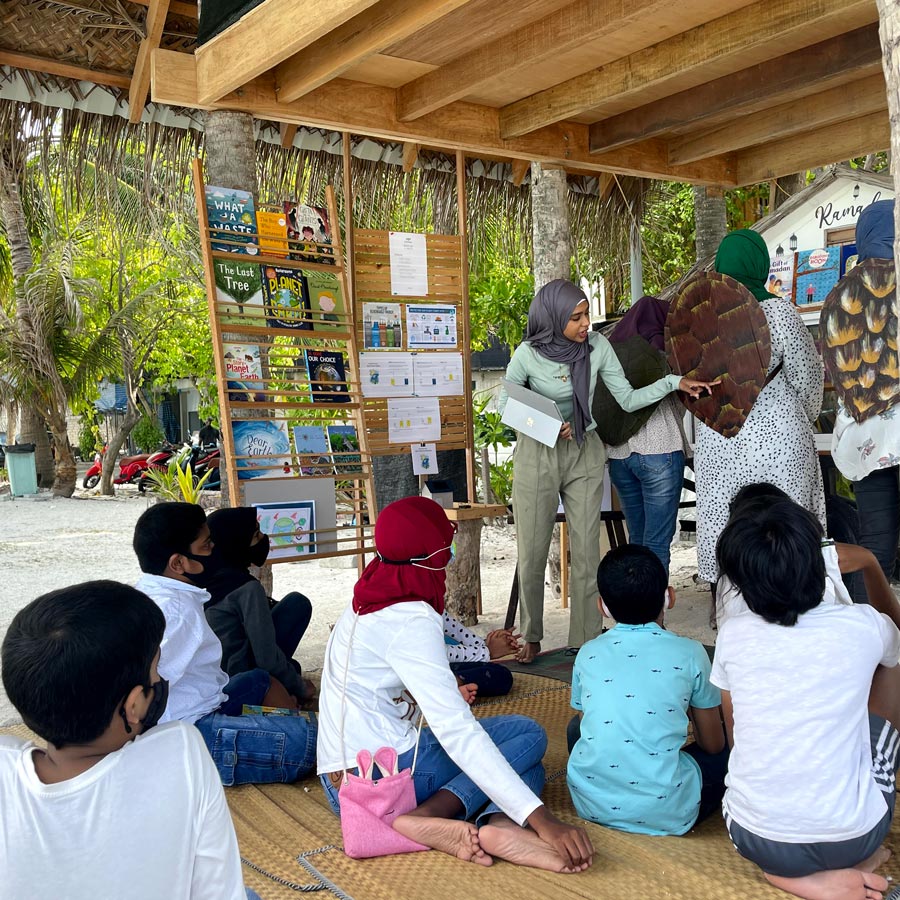
It is said that education can change people, communities, entire nations, and even the future of humanity. Therefore, communication, education and public awareness is vital to the success of any conservation program. The aim of environmental education is to create responsible citizens who are environmentally literate, concerned for the environment, and motivated and skilled to actively participate in its protection and improvement.
Our educational outreach initiatives take many forms and include a wide range of topics. We cover everything from sea turtle biology, anatomy, husbandry and veterinary care to threats, conservation and research findings.
Educational initiatives
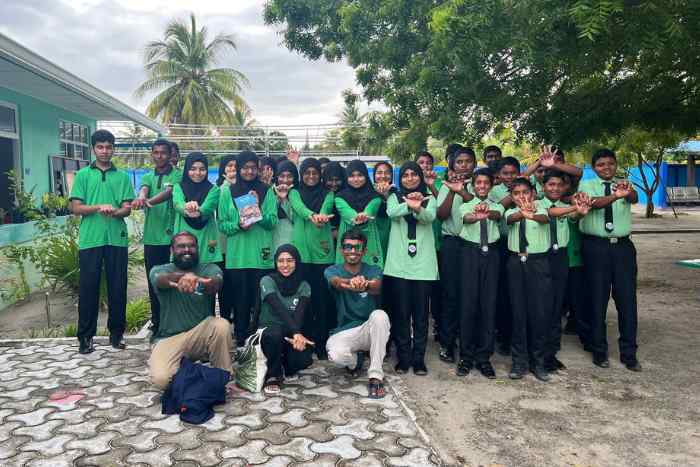
Turtle talks, workshops and school visits
All of our resort-based sea turtle biologists deliver weekly presentations to guests, guide sea turtle-focused snorkel trips, and take part in sea turtle themed “kids activities”. We also educate resort staff and tour operators, and work closely with water-sports and dive center staff, as well as boat crews, in all our locations. In addition, we visit local communities, schools and activity clubs with interactive workshops crammed with science based educational games and activities. Our rescue and rehabilitation facilities also welcome school children (both in person and virtually) and resort guests to visit.

Internship programmes
One of ORP’s main goals is to develop local capacity for sea turtle conservation and conservation medicine – particularly in the Global South. In Kenya and the Maldives, we offer paid internship opportunities for Maldivian and Kenyan youth, ranging from short-term placements to longer, in-depth programmes.
Each internship is an immersive introduction to the world of sea turtle conservation. Designed to train and empower young people, our programmes offer hands-on experience and comprehensive learning in areas such as research, rehabilitation, and community outreach. The aim is not only to identify future conservation talent for ORP, but also to provide young people with practical insight into what it’s like to work in this field, and to equip them with the knowledge and skills needed for a career in sea turtle conservation.
Several of our former interns have gone on to join ORP as full-time staff, while others have continued their conservation journeys with other NGOs and government agencies – all championing the protection of sea turtles.
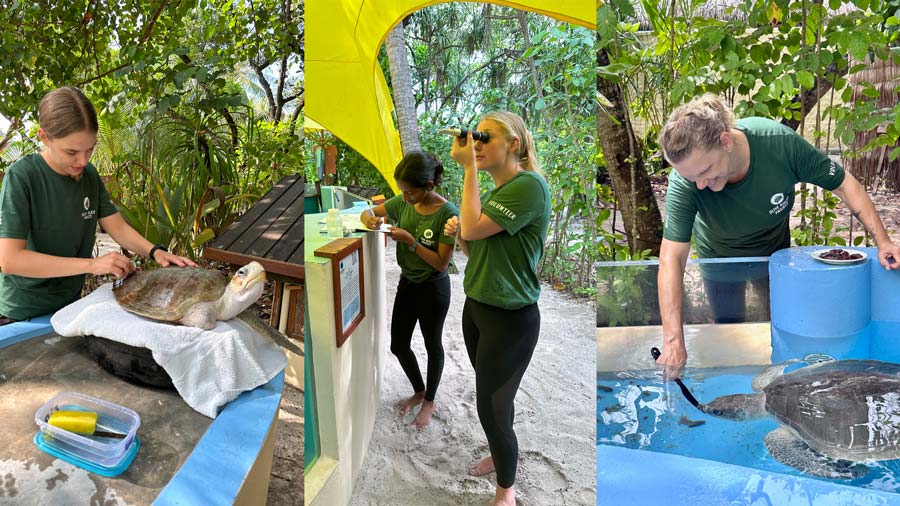
Volunteer opportunities
We offer year-round volunteer opportunities at the Marine Turtle Rescue Centre in the Maldives. Volunteers get hands-on experience working with sea turtles and gain unique insights into sea turtle conservation medicine. They learn about sea turtle biology and anatomy, the causes and treatment of injuries, the threats these animals face in the wild, and ways to support their conservation.
Working alongside our experienced veterinary team, volunteers support the recovery of injured and sick sea turtles and help prepare them for release back into the wild. As part of our broader education programme, the volunteer experience raises awareness, builds knowledge, and fosters a deeper understanding of marine conservation challenges and responses.
Through their involvement, volunteers contribute directly to the conservation of these remarkable yet threatened animals – while also having the experience of a lifetime!
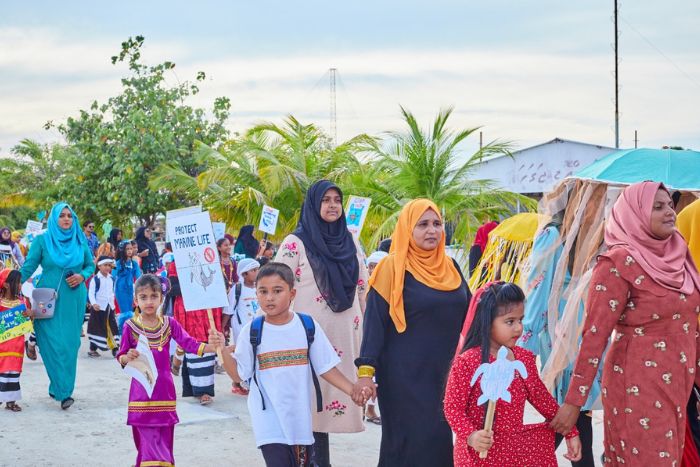
Educational festivals
Sea turtle and marine life festivals are excellent ways to reach new audiences and interact with people, and we regularly attend and organise such events. In Kenya, we host the Diani Sea Turtle Festival in June every year. The event is regularly attended by hundreds of people. In Maldives, we host the biannual Vaavoshi Turtle Festival, bringing together islands and communities, local government agencies, environmentalists, and visitors from around the Maldives.
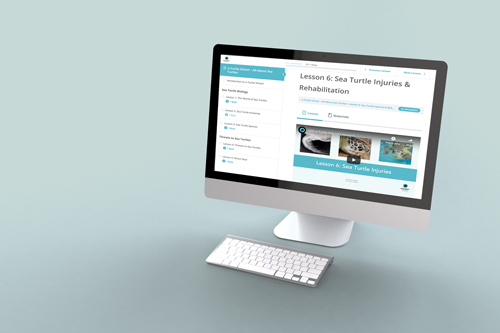
Digital & virtual education
Social media and the internet play an important role in spreading awareness to as many people as possible. We maintain an active presence on various social media channels, posting both educational and more entertaining content. The e-learning platform on our website offers free courses and resources, for both sea turtle lovers in general and the more scientifically minded. In addition, we regularly attend and organise virtual events and conferences to present our work and research findings.
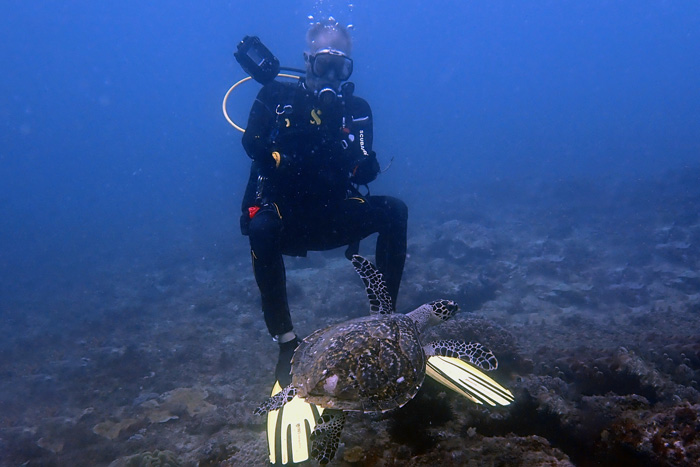
Citizen science
Citizen Science is defined as research carried out by non-specialists. Our sea turtle photo-ID project is an ideal citizen science project because sea turtles are easily identifiable and frequently seen where we work; taking photos involves minimal training; both archived and new photos can be used; and many tourists are in the water with cameras already! We also rely on citizen scientists to report and submit data for recovered ghost gear and marine life entanglement. Citizen science is an excellent way to educate and involve the general public in conservation projects.
Community outreach
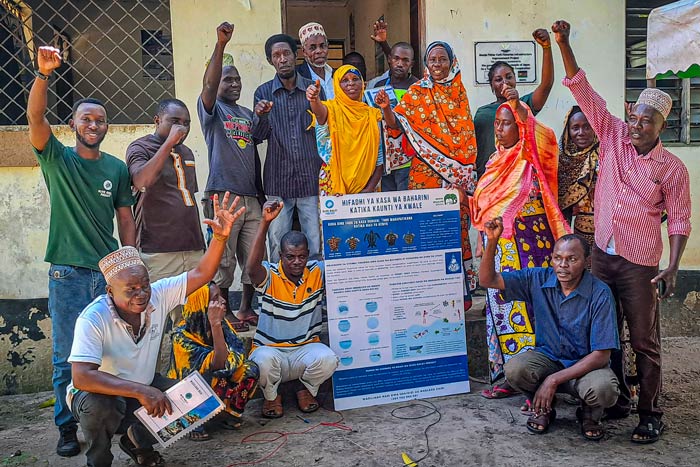
We believe we can achieve sustainable and positive behavioural changes only if the local communities which are affected are part of the solution. Participation from local communities in sea turtle conservation efforts is therefore very important to us. Our community outreach programmes focus on raising awareness and strengthening the capacity to protect the marine environment. We hope that if we can increase concern and enthusiasm for the marine environment, local knowledge and resources will mobilise into action to, for example, fight ghost gear, and conserve sea turtles in their local areas.
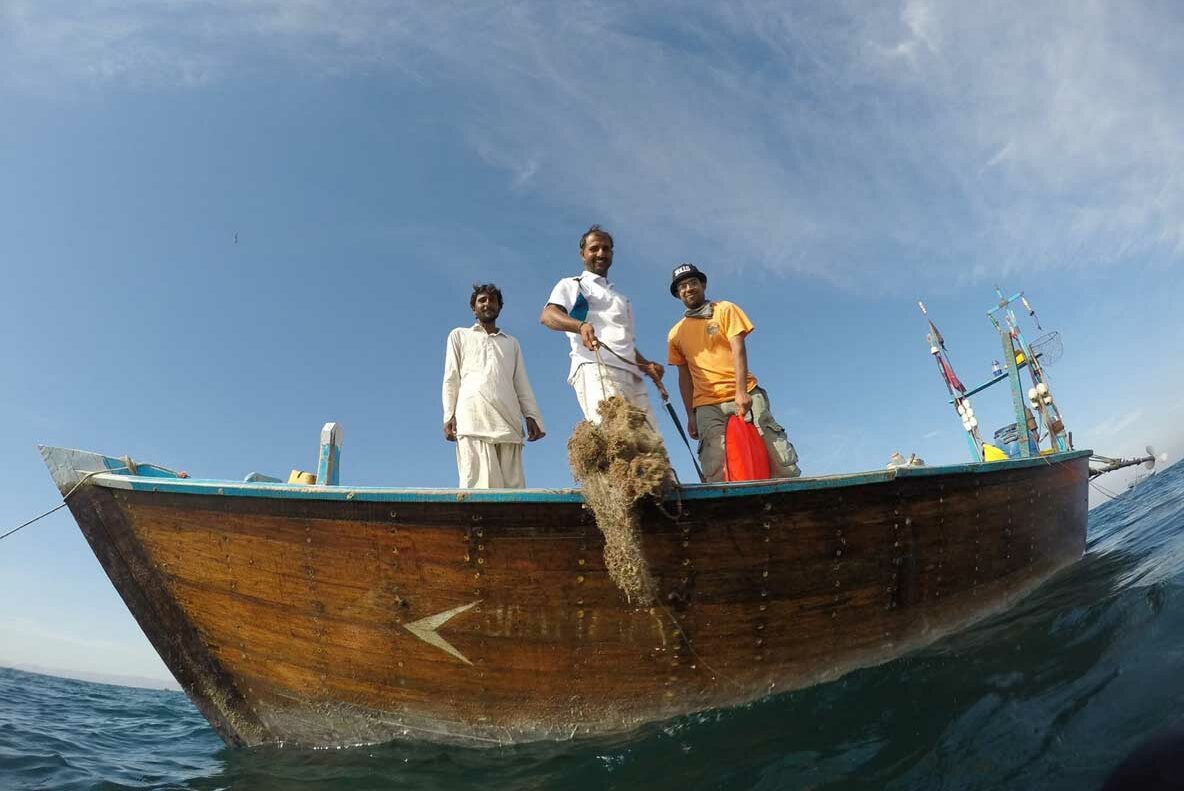
Working with local fishing communities
Fishing provides a vital income for many people. Working with local fishing communities is, therefore, key in the fight against ghost gear and bycatch. These coastal communities have a plethora of knowledge and an intimate connection with the ocean and marine life, often having lived in the same environments for generations. We focus on understanding their needs and perspectives, as well as their position in the complex problem of ghost gear and accidental bycatch. This allows us to work together on real solutions for the future. Solutions which not only include ways to minimise ghost gear and reuse end-of-life fishing gear but also tackle the challenge of storing the accumulation of recovered and obsolete nets.
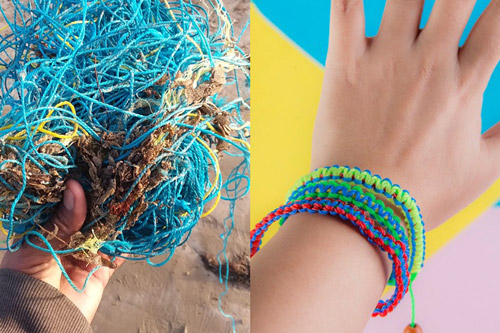
Circular economy projects
Working with a local fishing community (Abdul Rehman Goth in Pakistan) to develop a circular economy has proven a successful project for both the community and the protection of sea turtles. Through the cultivation of trust and relationships we have been able to recover and repurpose more than six tons of ghost gear and reduce ghost gear to near undetectable levels in the community. Moreover, the community is able to generate an alternative income from ghost gear and see ghost gear as an opportunity rather than waste.
Collaborating with affected industries, communities and governments
Collaboration, collaboration, collaboration! For effective management strategies to be implemented, organisations must be willing to work with people from different sectors such as governments and local communities. Sea turtles travel not only long distances, but across political borders. Therefore, working with multiple governments and communities to protect sea turtles is vital for effective management.
Although many of the threats that sea turtles face are from
industrial practices, working with those industries is an important part of sea turtle conservation. For effective management strategies to be implemented, organisations must be willing to work with people from different sectors, including governments and local communities. Rather than seeing the fishing or tourist industries as threats, for example, we work alongside these industries to safeguard sea turtles and develop solutions together to create a world in which all can coexist.

